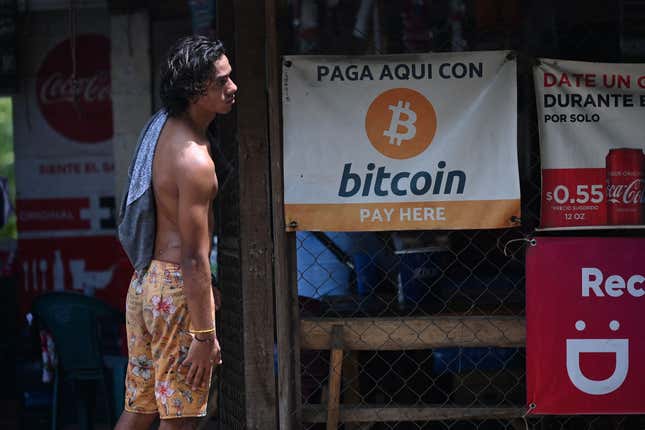
Bitcoin has officially been recognized as a legal currency in the Central African Republic Agence France-Presse reports, making it the second country in the world to officially adopt it as an official tender.
“There’s a common narrative that sub-Saharan African countries are often one step behind when it comes to adapting to new technology,” Central African Republic Finance Minister Herve Ndoba said to Bloomberg. “This time, we can actually say that our country is one step ahead.”
The World Bank states that the Central African Republic is one of the poorest nations despite the abundance of natural resources and valuable mineral deposits. Adopting a cryptocurrency like bitcoin could be an attempt to jumpstart the landlocked nation’s economy. The Central African Republic’s acceptance of bitcoin will operate under a legal framework that the government has been developing, says Bloomberg, which allegedly includes a regulatory body to oversee the use of cryptocurrency across the country.
The news comes fresh off the heels of a recent report published this month from the National Bureau of Economic Research that bitcoin is not seeing widespread use in El Salvador. Bitcoin became legal tender in El Salvador in September of last year to mixed reception from the country’s populace. The president of El Salvador purchased 400 BTC for the country, and plans were set in place to build a “bitcoin city” to mine cryptocurrency using volcanoes. However, the new report seems to indicate that the hype has died down.
“[B]itcoin is not widely used as a medium of exchange,” the NBER report concluded after surveying 1,800 households in El Salvador this past February. The report suggests that bitcoin failed to catch on through the Salvadorian public due to a lack of trust in Chivo wallet (the official government app to trade and store bitcoin), and a general preference to pay in cash.